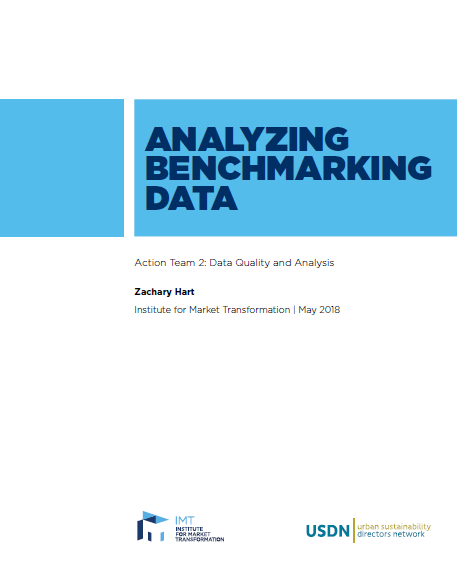As of May 2018, 24 U.S. cities, three states and one county passed benchmarking and transparency laws that address the tracking and reporting of annual building performance data. Analyzing Benchmarking Data focuses on the annual benchmarking reports that many jurisdictions publish to summarize 12 months of reported energy and/or water utility data. It covers the types of analysis that jurisdictions with benchmarking laws have used to extract valuable information from the benchmarking data, and gives examples of how some jurisdictions have calculated and displayed their analytical findings.
The report describes data analyses that support major requirements of an effective benchmarking program such as documenting the effectiveness of implementation, providing summary information about public and private buildings, documenting trends in energy and water performance, and communicating insights to stakeholders. Each description explains why that analysis is important to include and how to calculate it. Additionally, for most analyses, an example of how one or more jurisdictions have displayed the results in their annual benchmarking reports is included.
The authors of this resource drew from works published by jurisdictions that are currently implementing benchmarking ordinances, academic publications, as well as interviews and discussions with members of the Urban Sustainability Directors Network (USDN) Benchmarking and Energy Data Collective Action Group. It is important to note that accurate analysis of benchmarking data requires a high-quality dataset. Otherwise, the findings of the analysis could be skewed by incorrect underlying information.
Those implementing a benchmarking policy or program are highly encouraged to read these related IMT and USDN reports:
- Managing Benchmarking Data Quality, which proposes a framework for checking the quality of submitted benchmarking data and for handling suspected data errors.
- Sharing Data to Motivate Action, which covers the latest techniques for developing energy benchmarking scorecards, also called energy benchmarking profiles, to present energy data to building owners as actionable information to encourage investment in efficiency.
